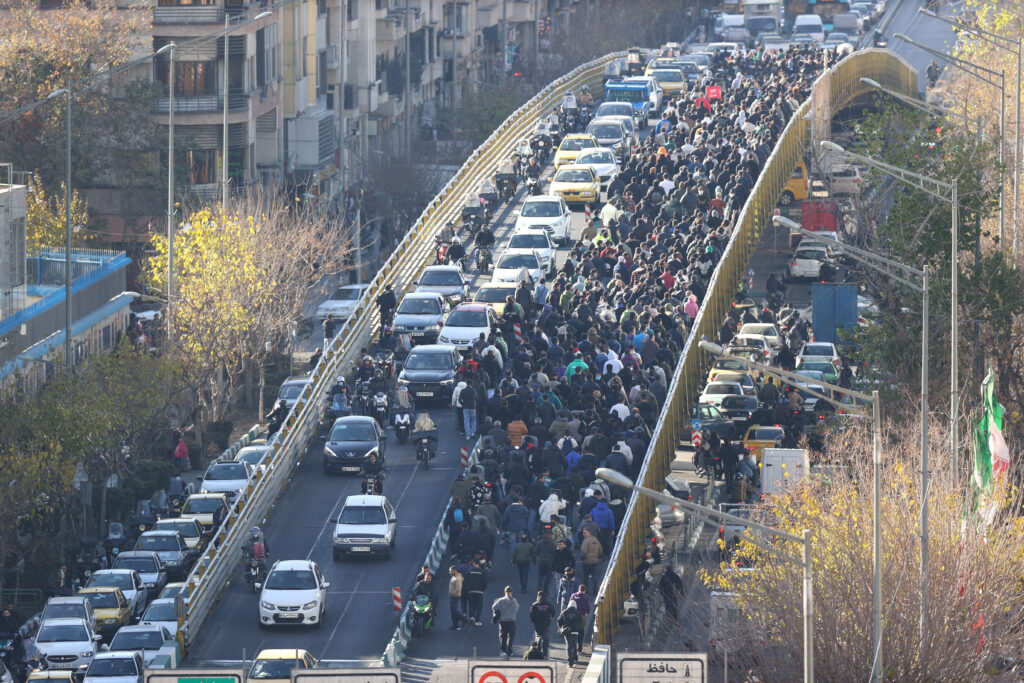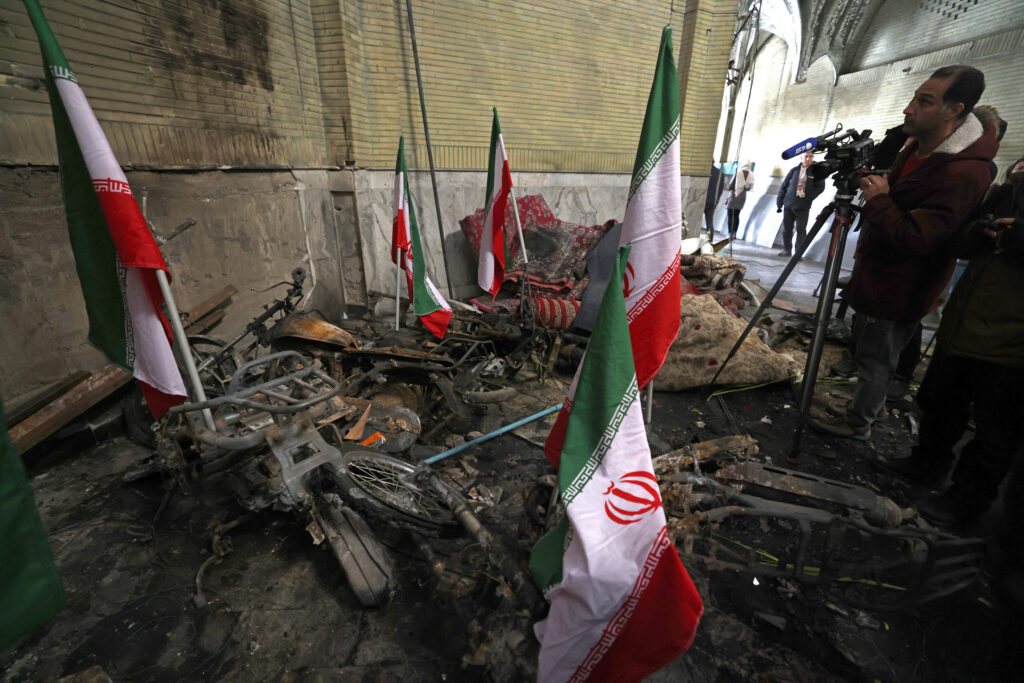Tunisia has moved recently to equalise its inheritance law, putting women on an equal footing with men. Research associate Muneerah Razak ties in history with the current debates on what the Islamic law reforms mean for Tunisia.
Political symbolism and its effect on the debate between Islamic laws and women’s rights
- -

Introduction
In mid-August 2018, Tunisia’s President Beji Caid Essebi proposed giving women equal inheritance rights despite protests from thousands of people objecting to any challenge to Islamic law.[1] The current law, based on Islamic law, typically allows men to inherit up to double of what women would receive. This proposal was part of a larger report by the Commission of Individual Liberties and Equality (COLIBE), which called for reforms pertaining to women and the LGBTQ community.
What are the responses to this reform?
Responses to the recent proposal have varied. The government had been deciding on what to do with the inheritance law for about a year. As the decision brewed, there was a growing body of support. In March 2018, more than a 1000 people in the country’s capital campaigned for equality.[2]
Supporters of this proposal refer to the Article 21 in the constitution adopted in 2014 that states: “All citizens, male and female, have equal rights and duties, and are equal before the law without any discrimination”. According to Hlima Jouini, a member of the Tunisian Association of Women Democrats, the current law fails to take account of societal changes. “Nowadays, the woman is responsible for her parents, for her family, the man is no longer the only person responsible or the head of the family, therefore the legislation must conform to this change,” she said.[3]
Opposing this notion were thousands of Tunisians who protested the government report on gender equality, claiming that it was contrary to divinely mandated Islamic law, which was thus legally binding and immutable. The protest was consistent with similar demonstrations earlier.[4]
Tunisia has been said to be at the forefront of “woman friendly” legislative changes in the Arab-Muslim world.[5] Last year, the country allowed Muslim women to marry a non-Muslim man. It was also the first country that passed a law ending violence against women, which included the removal of the loophole in the penal code that allowed rapists to escape punishment if they married their victims. [6] Despite this, the country is still torn between conservative and progressive camps on the issue of reforms.
The debate on Islamic law and women’s rights
Much of the popular debate on Islamic law and women’s rights has been either simplistic and partisan. One camp wants to do away with Islamic law on the basis that it does not protect women’s rights and that the adoption of Western law and ideals will lead to increased rights. The other camp is apologetic and uncritical, arguing that the jurisprudential discourse (fiqh) should not be reexamined as it is based on the sources of Islamic law (shari’a) which are immutable. Apologetics also argue that Islamic law has recognized many fundamental rights (including that of women) well before this recognition was given in other societies. These partisan approaches fail to see the (1) complexity in Islamic Law as well as (2) the legal transformation of this legal system.
- What is Islamic Law?
Islamic Law includes both the meanings of shari’a and fiqh. It is often used today in mainstream media to describe the penal and family laws – legal rulings extracted from fiqh (which is only a part of Islamic Law). Jurisprudence (fiqh) is a huge collection of juridical opinions that were given by various jurists from multiple schools (madhab). Legal rulings (such as rulings on inheritance etc) are extracted from the fiqh to apply shari’a to the daily lives of Muslims. Fiqh refers to the human interpretation of the sharia. Shari’a means the “pathway”, which refers to the divine instruction and morality that comes from the Qur’an and Sunnah.
Simply put: whereas the shari’a (sources of law) is considered immutable and infallible, fiqh is considered fallible and changeable.
If fiqh is flexible and changes to meet the needs of the Muslim community across social contexts, shouldn’t it be able to accommodate the status of women and women’s rights today? Moreover, can it not be reexamined and renewed to meet the objective of justice and equality espoused in the shari’a?
- Legal Transformation of Islamic law in Tunisia
While it is true that fourteen hundred years ago, Islam elevated women to a spiritual and legal status equal to men and granted women types of protection not seen in many other societies, it cannot be denied that the codified Islamic laws in majority Muslim countries today do not provide gender justice to women.
If the immutable principle in shari’a is justice and fiqh allows for more interpretations, why are there codes that are fixed and do not accommodate women’s rights? Why are the reforms happening now? And why are there different responses to these reforms? Appreciating the socio-historical transformation of the traditional Islamic legal system will allow us to answer some of these questions.
An explanation for the fixed patriarchal codes of law in Islamic Family Law is that it was due to both pre-modern Muslim juristic legacy as well as codifications[7] of these legal rulings that were by-products of modernisation, colonisation and the implementation of the modern nation-state.[8]
The classical jurists’ interpretations of the sacred texts contained a strong patriarchal ethos. As we progress from the time of revelation, we find more women being marginalised from the production of religious knowledge. Women were among the main transmitters of the hadith as well as scholars and teachers to great scholars (such as Imam Shafi’e etc). However, the emergence of the fiqh schools (madhab) sidelined women’s voices in the law-making processes.[9] Despite this, it was still a flexible system, characterized by heterogeneity and context and culture-bound implementation in contrast to its post-codification system. According to Sonbol, the discourses in fiqh were regarded as opinions rather than legal rulings.[10] Furthermore, these discourses were articulated based on the common law established through local practices, choice of legal school and the qadi’s (judge) discretion (what the qadi saw as preferable for the individual and the community).
The rise of modern nation-states coupled with the disruptions brought about by Western colonialism led to the codification of these patriarchal norms into legal norms and codes.
In Tunisia, similar to other countries with significant Muslim populations, legal codes based on European models have rapidly replaced Islamic law in commercial, criminal and administrative law in the Middle East. Personal status law – concerned with marriage, divorce, child custody, and other issues pertaining to family — is the only aspect of Islamic law that has largely retained the linkages between the legal and the sacred. The codes were a product of modern state committees deliberating on nation-state building issues, resulting in the selection of legal rulings from the fiqh that further marginalised women.[11] This explains the significant differences in laws and application in various Muslim countries, notwithstanding the fact that these laws are inspired by the shari’a.
After gaining independence from France, Tunisia, like most Maghribi states, opted for the French model of law as it gave the centralized nation-state the majority of control over the legal system. Today, the personal status laws are no longer interpreted by reference to Islamic jurisprudence but are still somewhat construed using Islamic principles. (i.e. the family laws, that are based on human interpretation, are now fixed in codes)
With this, we can already understand why it would be controversial to reform these codified personal status laws. Without considering its historical evolution, the now codified personal status laws are perceived to be unchanging by segments of Tunisians as it is the only segment of law that seem to largely retain the link between the legal and the sacred.
The political symbolism of Islamic family law became more pronounced with the growth of Islamist movements in the 1970s, which put pressure on states to adapt family law to fundamentalist definitions of Muslim identity.[12] With Islamic family law as a powerful political symbol, replacing or reforming it could be perceived as a betrayal of one’s “own culture”.
With the misunderstanding that Islamic law is unchangeable, we see a binary between those who want to drop Islamic law totally and adopt Western laws, and those who want to retain these codes.
The middle way?
Going beyond the dichotomy of “secular/islamic” will enable us to see that a new voice — a gender discourse that is “feminist” (albeit different from Western feminism) and “Islamic” in its sources of legitimacy—has entered the discussion on Islamic law reforms. Muslim societies in the Middle East still hold the shari’a as the source of family law and gendered conduct. Thus, any successful approach to attain legal changed should take shari’a as a starting point, instead of alienating these societies through demonising what they hold sacred. At the same time, it is necessary talk about reform of legal rulings with an understanding that fiqh is not stagnant, unchanging and unchallengeable. It is a venue for deliberation and designing laws that are preferable for society. This flexible conception would enable all members of society to participate dynamically in deciding what is “preferable” and what kind of society they want to live in.
[1] https://www.reuters.com/article/us-tunisia-women/tunisian-president-proposes-inheritance-equality-for-women-with-exceptions-idUSKBN1KY1GE
[2] https://www.reuters.com/article/us-tunisia-women/tunisian-women-march-for-equal-inheritance-rights-idUSKCN1GM0OT
[3] https://www.malaymail.com/s/1662204/tunisia-announces-draft-bill-to-give-women-equal-inheritance
[4] https://www.alaraby.co.uk/english/news/2018/8/11/thousands-of-conservative-muslims-protest-tunisia-gender-equality-report
[5] With Tunisia as an example, Jordan and Lebanon followed suit – in 2017, these countries repealed laws that would exonerate a rapist if he married his victim. Marriage is under the purview of personal status laws which is supposedly based in Islamic law.
[6] https://www.hrw.org/news/2017/07/27/tunisia-landmark-step-shield-women-violence
[7] Codification of Islamic law is the process by which the various rulings of the Sharah (al-akm al-Sharah) of a particular subject matter (property, torts, family law, etc.) are collected and restated in a succinct manner to form a legal code that has full effect within a given political jurisdiction.
[8] For more in-depth discussion on this, read Wael Hallaq’s “Shari’a: Theory, Practice, Transformations” and https://www.theatlantic.com/international/archive/2012/04/the-real-roots-of-sexism-in-the-middle-east-its-not-islam-race-or-hate/256362/
[9] Towards Gender Equality: Muslim Family Laws and the Shari‘a’, in Zainah Anwar (ed.) Wanted: Equality and Justice in the Muslim Family, Musawah: An Initiative of Sisters of Islam, 2009, accessible at http://www.musawah.org/wanted-equality-and-justice-muslim-family-english
[10] Sonbol, Amira El-Azhary, “Shari`ah and State Formation: Historical Perspective,” Chicago Journal of International Law: Vol. 8: No. 1, Article 6, 2007. Available at: http://chicagounbound.uchicago.edu/cjil/vol8/iss1/6
[11] Ibid.
[12] Moors, Annelies, “Debating Islamic Family Law: Legal Texts and Social Practices” in The Social History of Women and Gender in the Modern Middle East, ed. Margaret Lee Meriwether and Judith E Tucker, 1999, p. 144-177








